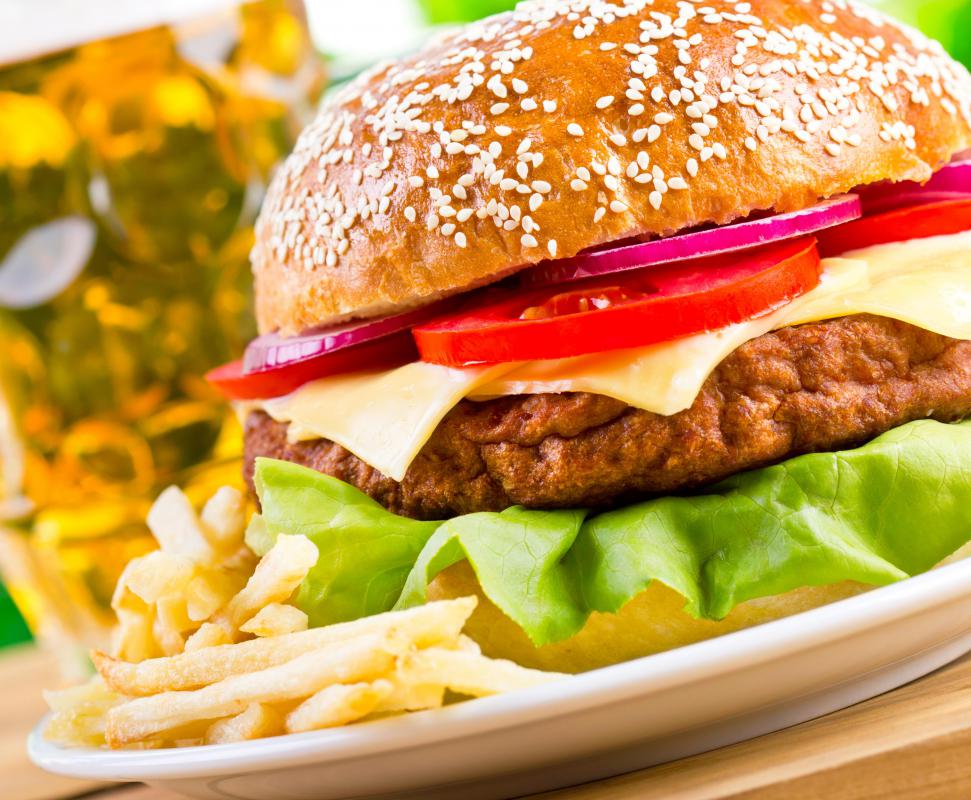At WiseGEEK, we're committed to delivering accurate, trustworthy information. Our expert-authored content is rigorously fact-checked and sourced from credible authorities. Discover how we uphold the highest standards in providing you with reliable knowledge.
What is Puffery?
Puffery is language used in the promotion of a product which is designed to make the product seem more appealing with the use of claims which are usually subjective, bombastic, and difficult to prove. A classic example of puffery is a sign over a diner which proclaims that it has the “world's best” hamburgers. Most nations have laws which freely permit companies to use puffery, distinguishing mere puffery from actual factual claims which could mislead consumers.
The key distinguishing feature of puffery is that consumers do not take it seriously. They may consider it when evaluating a product to decide whether or not to purchase it, but they understand that the claim is not literal. When batteries say that they “last forever,” for example, consumers understand that the batteries will eventually fail, but that they may have an unusually long life. Likewise, when a consumer buys the “world's finest” luggage, he or she knows that the luggage may not actually be the finest in the world, because this would be difficult to determine.

Some people have suggested that the line between puffery and misleading claims may be crossed by some companies. When a soda company markets a “healthy” product, for example, lawyers may ask if consumers should take that to mean that the soda is healthier than comparative products or that the soda is actually good for them. If the claim is puffery, consumers understand that the soda is healthier than its competitors, but if it is a misleading claim, they may think that the soda confers health benefits.
In many regions, companies cannot be prosecuted for puffery, and lawyers may have to attack puffery and get it recategorized as a misleading claim in order to prove a case. If a consumer believes the language associated with a product and it fails to live up to the claim, the consumer might argue that he or she was persuaded by what appeared to be factual claims, while the defense attorneys might suggest that a reasonable person would understand that such claims were not literally plausible.
People have to watch out for this technique in the language used to promote products, because it can sometimes be difficult to identify puffery, and in some cases, companies may be obligated to include disclaimers to be sure that consumers understand that their claims are hyperbole. A cosmetics manufacturer, for example, cannot say that a facial scrub is like plastic surgery, unless it includes a disclaimer which states that results are not comparable to surgery. As a general rule, any subjective claim which would be difficult to verify should be treated as suspect.
AS FEATURED ON:
AS FEATURED ON:











Discussion Comments
@burcidi-- I've heard about that case, but what Apple did with that product advertisement wasn't puffery, it was product representation (or misrepresentation).
We learned about these concepts in my business course last week. My instructor defined puffery as wildly exaggerated, superlative, vague opinions (hyperbole). Saying that a product has WiFi is not puffery, it's a claim, a representation of the product. Puffery is not explicit, it's subjective and it doesn't have factual claims.
A good example of puffery is the advertising propaganda that one dog food brand uses. They say that this dog food is "the choice of the champions." This is puffery, there is no fact there. It's not even something that could be proven. It's vague and exaggerated. Another example is when restaurants advertise that they use the "freshest ingredients" to make their food. Freshest according to whom, in comparison to what, they don't say. It's vague and again exaggerated.
Of course, every country doesn't treat this process the same way. In some countries, the corporates might have the upper hand in these cases, in others consumers have the upper hand.
Especially with health related product advertisements, I see that companies often include disclaimers below or after their claims. I personally don't mind the use of puffery as long as claims that are made don't cause someone's health or well-being to suffer.
Many products that use puffery do inevitably lead to disappointment and the loss of money for the consumer. But as long as there are laws that allow companies to use this marketing tool, there isn't much we can do.
Perhaps, the government should put more control on this process. I agree that there is a thin line between puffery and misleading advertisements. And many companies cross the line way too often. Just because the government allows companies to engage in this doesn't mean that they should be allowed to say whatever they want about the product.
Post your comments